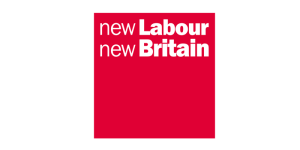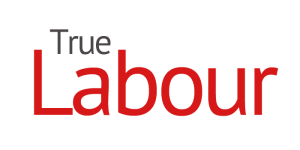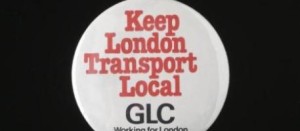A new brand for moderate Labour
Whatever the result of its leadership battle, it looks like Labour is heading for a historic split between its moderates, represented by the parliamentary Labour party, and left-wingers loyal to Jeremy Corbyn.
According to this Economist article, Labour moderates ‘are taking advice on who would keep Labour’s name, logo and assets following a split’. Obviously, they need to know the position. But would they necessarily want the name and logo? Or would it be better to rebrand the offshoot as something new?
Keeping the old brand: pros and cons
A lot depends on what name Corbyn’s hard-left movement wants to take. With his colossal mandate from members, and as an incumbent leader who’s happy with the status quo, Corbs could presumably mount a strong claim to the Labour name. And surely nobody would want two variations of ‘Labour’ on ballot papers.
For the sake of argument, let’s assume that Corbyn and co rebrand as ‘Momentum’ or ‘Progress’ or ‘Venceremos’ or something equally beardy, and the PLP can use all flavours of ‘Labour’ or whatever else they want.
 In this situation, moderate Labour could continue with the same name, and even identical branding. This would give the impression that Corbyn and co had been booted out, and that Labour had been restored to… well, to whatever it was before.
In this situation, moderate Labour could continue with the same name, and even identical branding. This would give the impression that Corbyn and co had been booted out, and that Labour had been restored to… well, to whatever it was before.
If that reminds voters how much the Blair/Brown government did for them, it will be good. But if it merely suggests a return to the facepalm drift of the Miliband years, it will be really, really bad.
Then there are the mixed connotations of the word ‘Labour’. At best, it evokes worthy striving, ‘hardworking families’ (ugh) and the dignity of, er, labour. At worst, it suggests thankless toil, traumatic childbirth and pious self-righteousness. Either way, it’s a bit remote from modern centrist politics and hardly a name you’d choose if you were starting out.
Overall, keeping the same brand isn’t necessarily the risk-free choice it might appear.
Rebranding: pros and cons
On the other hand, choosing a new name would suggest the same things it does in the marketing world: novelty, progress, change. Possibly even excitement.
It would signal a clean break with the past – including the very recent past, which is desirable – and a genuine intention to move on. In an era where politics is consistently seen as out of step with reality, even a token effort at change surely has to be a plus.
On the downside, it would mean losing all the equity in the Labour brand, which means jettisoning a century-long heritage of progressive thinking and experience in government. Those aren’t things to be lightly tossed aside, but desperate times call for desperate measures.
On balance, I think a new name is the way to go. So in that spirit, let’s look at some options. (Please note that these are just tentative, placeholder ideas, meant to illustrate possible branding strategies. I’m not suggesting they rock creatively.)
New Labour
Obviously a non-starter, but it’s worth remembering what a masterstroke this was.

Tony Blair eagerly grabbed the one-time-only chance to relaunch Labour as a dance remix of itself, skilfully combining both the heritage of the old name and the dynamism of a new one.
In terms of naming political parties, ‘New Labour’ set the bar pretty high and scores 9/10. If Blair had never done it, now would be the perfect time. But he did – and so, heaving a heavy sigh, we move on.
Real Labour, True Labour, etc
With ‘New Labour’ ruled out, the moderates could go for something like ‘Real Labour’. But that might have unfortunate shades of the Real IRA. So how about ‘True Labour’?

If executed well, this would cast Corbynistas as entryist radicals who hijacked the party, while ennobling the PLP as authentic keepers of the flame. However, it would also bring some of the ‘old’ Labour baggage with it – for better and for worse.
It also has vaguely defensive undertones, with its anxious insistence on being the ‘proper’ version, as well as the disquieting sense that some other Labour still exists elsewhere, which dilutes or diffuses the brand equity.
Overall, this is highly contingent on what name Corbyn chooses, and feels like a half-measure when mod-Lab needs to go all the way. I’m giving it 7/10.
TLAs (SDP, SNP, SWP, GLC, etc)
The three-letter acronym has previous form in Labour breakaways, having been used by the SDP in 1981. For that reason, it tends to evoke the era of that party, and contemporary organisations such as the GLC – on balance, probably not the best historical resonances.

In terms of meaning, TLAs are a compromise when your full name has too many ideas crammed into it (‘social’, ‘democratic’) and/or includes superfluous words (‘party’). Moreover, the initials have zero meaning except to those who already know you.
That’s probably OK if you serve an existing, pre-motivated base (e.g. SWP, SNP). But if you want to reach a new audience – create one, in fact – initials could end up embodying evasion and equivocation when you need to project clarity and strength.

TLAs also demonstrate that whatever name you choose, you will end up being known by the shortest possible version of it (‘SDP’, ‘Lib Dem’, ‘Nu Lab’). And if that short version is an acronym that sounds like a faceless government quango (‘DSS’) or a stuffy corporate monolith (‘IBM’), those are the perceptions you will be saddled with, regardless of what your acronym actually stands for.
Therefore, as a banner around which to mobilise popular sentiment, acronyms have little to commend them. 2/10.
New Way, New Direction, etc
Another approach would be to turn the novelty of the brand into its entire value proposition, and adopt a name that explicitly positioned the party as a move in a new direction.

If taken at face value, this could attract the ‘fed up with politics’ vote. But if voters aren’t convinced, it would risk being seen as a mere gesture, or a fig leaf for ‘business as usual’.
Also, it would face the same problems that New Labour eventually ran into. Time goes by, the shine comes off and the new broom becomes old hat. As Talk Talk sang, ‘Yesterday’s favourite / Don’t you hate it?’
Overall, it sounds appealing in the short term, but probably has a definite sell-by date. 5/10.
Europa, EUnity, etc
The new party might well find itself a rallying point for pro-EU feeling. So it could brand itself as a single-issue party – a sort of anti-UKIP. After all, UKIP seems to be stubbornly continuing to exist post-Brexit, like an unflushable turd, and there’s nothing to stop it moving into other areas of policy and becoming a ‘real’ party.

In theory, pro-Europe branding would lock in the votes of the 48% who voted Remain. But it would also make the party something of a hostage to fortune, either because Remain sentiment fades away for some reason, or because the the UK recommits to the EU, making the positioning seem outdated.
Overall, like ‘New Way’, this is tactically appealing, but strategically naïve. Probably 4/10.
Concord, Confluence, Forum, etc
Without proportional representation, and possibly even with it, the breakaway party would probably need a coalition with other progressives to get into power. It would also be a magnet for moderates of all stripes who feel abandoned by extreme leadership, possibly including (whisper it) some one-nation Tories.
To reflect this collective nature, the name could emphasise diversity, collaboration and communication, suggesting a place where different views are welcome and indeed sought after.
The slogan would of course be ‘More in Common’, Jo Cox’s impassioned plea for tolerance and understanding.

This would position Concord as something genuinely new. Implicitly, it would also cast both Corbyn’s party and the Eurosceptic right as inflexible, hardline zealots, inviting disenchanted voters to think again about which ‘British values’ they truly want to endorse.
Crucially, it would also take an explicit stand against anti-immigration feeling and the values of UKIP – something that’s long overdue in British politics. For too long, politicians have winked at racism in the hope of quietly hoovering up some votes. That’s got to stop, and a party name is an ideal place to take a stand.
As you can probably tell, I think this is the way to go and therefore rate my own idea as an 8/10. Prepare Concord for take-off!